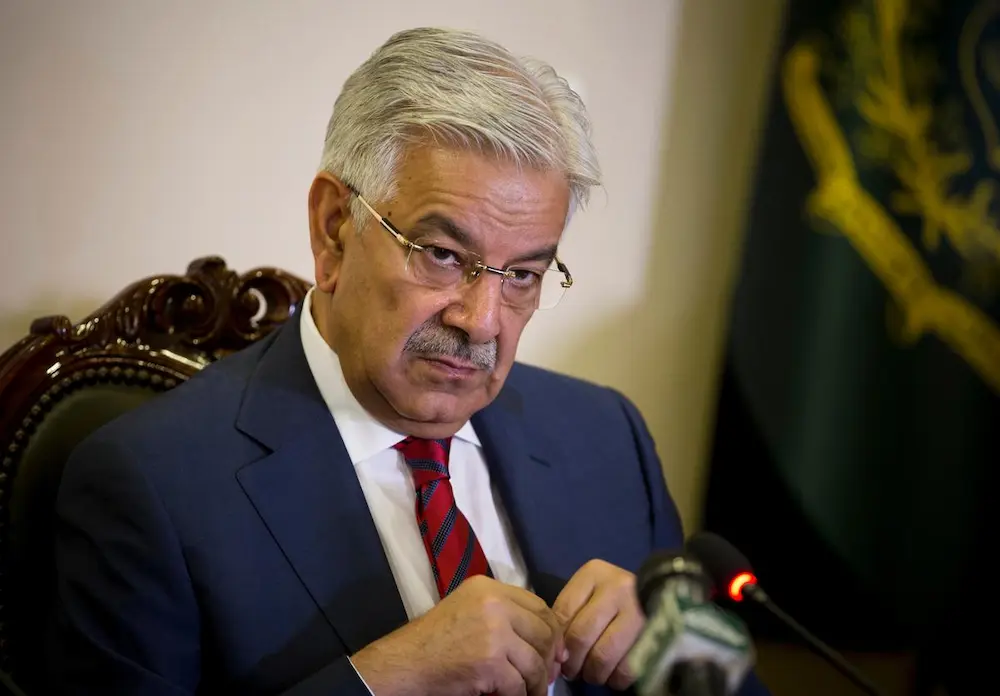
Pakistan has refuted claims that it would launch a nuclear strike against Israel if Tel Aviv used nuclear weapons on Iran
A Shocking Claim Sparks Global Concerns
Pakistan Denies Nuclear Strike Threat – The Middle East is once again at the center of a geopolitical storm. A senior Iranian official, General Mohsen Rezaei, recently claimed that Pakistan had assured Tehran it would launch a nuclear strike against Israel if Tel Aviv used nuclear weapons on Iran. The statement, made on Iranian state television, sent shockwaves across diplomatic circles, raising concerns about nuclear escalation in an already volatile region.
However, Pakistan swiftly denied the claim, with its Defence Minister Khawaja Asif and Foreign Minister Ishaq Dar categorically refuting any such commitment. Islamabad has warned against misinformation and fake news, emphasizing that its nuclear policy remains unchanged.
Pakistan’s Official Response: Strong Denial and Clarification
Pakistan’s leadership wasted no time in addressing the controversial statement. Foreign Minister Ishaq Dar called the claim “fabricated” and urged the international community to be cautious about misleading reports.
“There is a video on social media where an Iranian general was quoted as saying: ‘If Israel nukes Iran, then Pakistan will attack Israel with nuclear weapons.’ This is irresponsible and false news,” Dar stated in Parliament.
He further clarified that Pakistan’s nuclear policy has remained unchanged since 1998, emphasizing that its nuclear arsenal is strictly for self-defense and deterrence.
“Our nuclear capability is solely for the defense of our country and the well-being of our people. We do not engage in hegemonic designs against any neighbor,” said Defence Minister Khawaja Asif.
Pakistan also dismissed reports of any nuclear pact with Iran, stating that while Islamabad supports Tehran politically, it has not made any military commitments regarding nuclear retaliation.
The Context: Rising Tensions Between Israel and Iran
The claim comes at a time when Israel and Iran are locked in a fierce military confrontation. The two nations have exchanged missile fire, with Iran launching several barrages toward Israel, reportedly causing casualties. In response, Israel has carried out airstrikes deep inside Iranian territory, targeting military installations.
Pakistan has openly expressed political support for Iran, calling for Muslim unity against Israeli aggression. On June 14, Defence Minister Khawaja Asif urged Muslim nations to stand together or risk suffering the same fate as Iran and Palestine.
“Israel has targeted Iran, Yemen, and Palestine. If Muslim nations don’t unite now, each will face the same fate,” Asif warned.
However, despite its diplomatic stance, Pakistan has not made any nuclear threats against Israel.
Israel’s Nuclear Policy: A Doctrine of Ambiguity
Israel follows a policy of nuclear ambiguity, neither confirming nor denying the possession of nuclear weapons. However, it is widely believed to have a nuclear arsenal, supported by a doctrine focused on deterrence and counter-proliferation.
Iran, on the other hand, insists that its nuclear program is solely for peaceful purposes, such as energy production and medical research. As a signatory to the Non-Proliferation Treaty (NPT), Tehran has repeatedly claimed it does not seek nuclear weapons. However, Western nations and the International Atomic Energy Agency (IAEA) have raised concerns over Iran’s high-level uranium enrichment and ballistic missile program, suggesting possible military dimensions.
Misinformation and AI-Generated Fake News
Pakistan has also warned against misinformation spreading online, including AI-generated fake news. Foreign Minister Ishaq Dar pointed out that a viral video of former U.S. President Donald Trump urging Pakistan to stay out of the Israel-Iran conflict was fabricated using AI technology.
“We have checked that it was an AI-generated clip,” Dar stated.
The rise of deepfake technology and fabricated news reports has made it increasingly difficult to separate fact from fiction in global conflicts. Pakistan has urged media outlets and the public to verify sources before spreading unverified claims.
Geopolitical Implications: What’s Next?
The controversy surrounding Pakistan’s alleged nuclear threat highlights the fragile nature of alliances in the Middle East. While Islamabad has dismissed the claim, the broader conflict between Israel and Iran continues to escalate.
Pakistan has activated its crisis management unit to monitor the situation closely. It has also assisted in evacuating Pakistani students and pilgrims stranded in Iran due to the ongoing conflict.
Meanwhile, global powers are watching closely, with concerns that further escalation could drag more nations into the conflict. The United Nations and the Organisation of Islamic Cooperation (OIC) have been urged to intervene diplomatically to prevent a full-scale war.
A Fabricated Claim or a Diplomatic Warning?
While Iran’s claim about Pakistan’s nuclear involvement appears to be unfounded, the controversy underscores the dangerous rhetoric surrounding nuclear warfare. Islamabad has made it clear that its nuclear arsenal is for deterrence only, and it has not made any commitments to Iran regarding military retaliation.
However, the Middle East remains on edge, with tensions between Israel and Iran showing no signs of de-escalation. As misinformation spreads, it is crucial for nations, media outlets, and the public to rely on verified sources and diplomatic statements rather than speculation.
Pakistan’s message to Israel remains firm:
“Dare not look at Pakistan with an evil eye”
The world now waits to see how the Israel-Iran conflict unfolds and whether diplomatic efforts can prevent further escalation.
Final Thoughts: The Role of Responsible Journalism
In an era where fake news and AI-generated misinformation can spark geopolitical crises, responsible journalism is more important than ever. As tensions rise in the Middle East, fact-checking and diplomatic verification must take precedence over sensationalized headlines.
Pakistan’s denial of nuclear threats serves as a reminder that misinformation can fuel unnecessary panic. The global community must remain vigilant and prioritize diplomatic solutions over war rhetoric.
Stay updated with the latest news on Rapido Updates. Keep yourself updated with The World, India News, Entertainment, Market, Gadgets, Sports, and many more